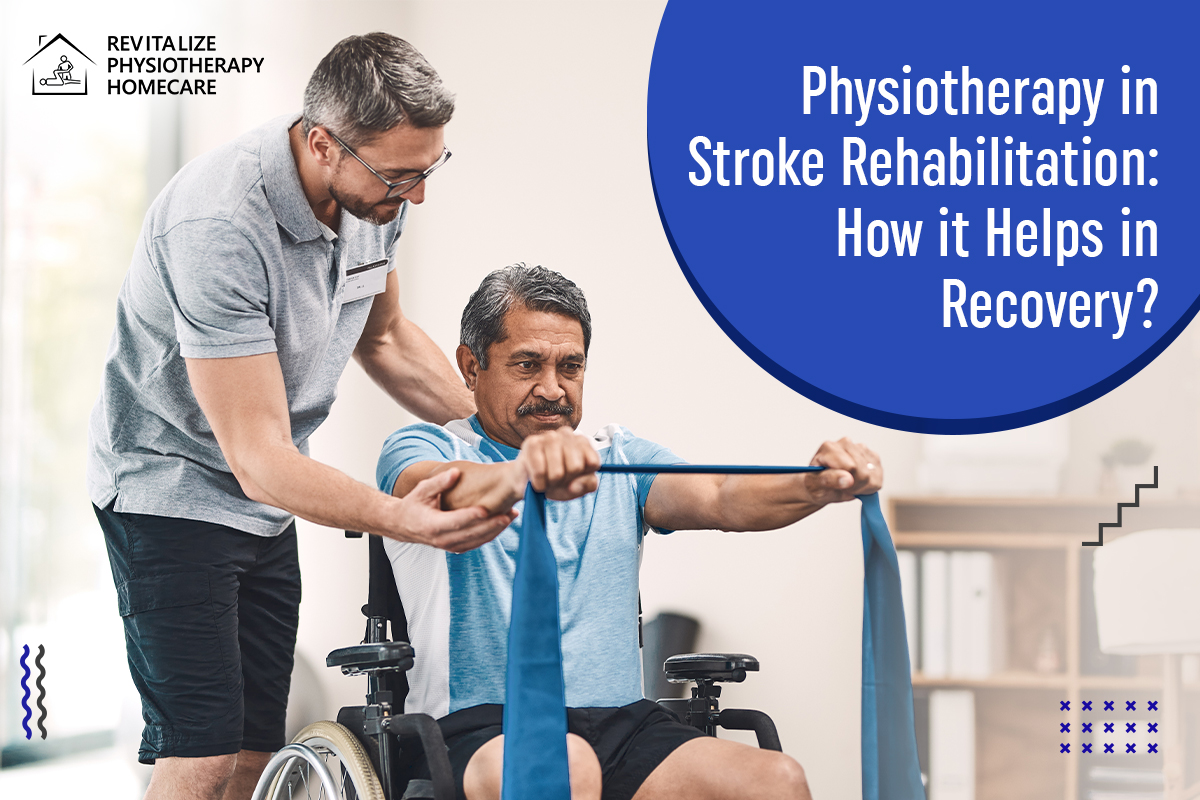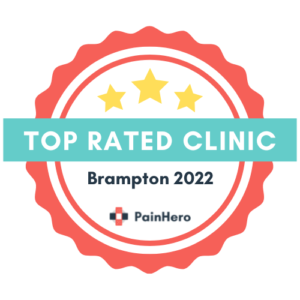Physiotherapy in Stroke Rehabilitation: How it Helps in Recovery?
“Did you know? The majority of Canadians—nine out of ten—are at risk for either heart issues or stroke. It may take three to six months to get back on your feet following the stroke.”
Recovering from a stroke can often feel like finding your way through an unfamiliar path. It is a journey that is daunting, unpredictable, and filled with challenges.
Physiotherapy stands as a beacon of hope in this journey. It guides the stroke survivor through the haze of their newfound physical limitations.
Further, a Brampton physiotherapist plays a crucial role in paving the way to recovery. As well as in rekindling the strength and independence of a patient that a stroke may have dimmed.
This specialized form of care is about more than just healing. It’s a transformative process that reassures patients about regaining their quality of life. In this blog, we’ll explore how physiotherapy unfolds its many benefits in the delicate phase of stroke rehabilitation.
What is Stroke and How it Happens?
Stroke occurs, when there is an insufficient blood supply towards the brain. There are two possible outcomes for this. First of all, an ischaemic stroke occurs when a blood vessel gets blocked, cutting off blood flow to certain parts of the brain. Another possible cause of a stroke is a hemorrhagic stroke, which happens when a blood vessel bursts into the brain.
In any case, since blood contains essential oxygen, if flow isn't promptly restored, brain cells may die. As well as the affected portion of the brain may become permanently damaged. Nowadays, most stroke victims will recover to some extent if they receive prompt, high-quality medical care. However, many people will continue to have problems with their daily tasks after a stroke.
Common Physical Symptoms Following a Stroke
Here are some of the most common physical symptoms a patient shows post-stroke.
- Paralysis
- Muscle weakness
- Seizures and spasticity
- Problems with vision
- Balance issues and ataxia
Needless to say, these symptoms are all debilitating as well as upsetting. Still, many of them can be improved or even completely resolved with the appropriate care. For stroke survivors, physical therapy is essential to managing their condition.
Physiotherapy for stroke: What is it?
Physiotherapy is one type of rehabilitation treatment. It focuses on regaining strength and mobility through a planned and supervised exercise program. Moreover, physical therapy plays a significant role in the rehabilitation process after a stroke. As it focuses on addressing and minimizing the physical consequences of a stroke.
Key Physiotherapy Techniques Used in Post-Stroke Recovery
Physiotherapy Centre Mississauga uses several physiotherapy techniques for stroke rehabilitation. These techniques include:
1. Exercises for motor control
The goal of these exercises is to enhance coordination and motor control.
2. Mobility Training
This could include instructions on how to operate mobility devices.
3. Constraint-induced movement therapy
This technique restricts the undamaged limb to increase the usage of the affected one.
4. Functional Electrical Stimulation (FES)
In paralyzed or weak muscles, electrical currents are utilized to stimulate muscle action.
5. Therapy for Range of Motion
It focuses on preserving or extending the flexibility and movement in the patient’s joints.
Benefits of Physiotherapy in Post-Stroke Recovery
1. Enhancing Mobility and Balance
After a stroke, the simple act of walking can be a hurdle. To improve mobility, physiotherapy gradually retrains the body's balance and coordination through exercises. Each step taken under the supervision of a physio for stroke rehab translates to a leap towards autonomy.
2. Improving Muscle Strength and Function
Stroke often leaves muscles weakened or paralyzed. Targeted physiotherapy exercises focus on the afflicted areas to rebuild muscular strength and function. As muscles regain their power, stroke survivors can return to their daily activities with greater ease.
3. Restoring Independence
A physio for stroke rehab aims to return the patient to their highest level of function and independence. It increases one's physical stamina, suppleness, strength and promotes better health. Additionally, it makes it simpler for stroke victims to go back to their regular lives and carry out more of their typical daily activities. As a result, patients may feel more confident and less dependent on their caregivers.
4. Reducing Spasticity and Pain
Spasticity and pain are common post-stroke challenges that can severely limit activity and quality of life. Through physiotherapy, patients learn specific techniques to manage and reduce these symptoms. This further improves comfort and promotes better sleep and overall well-being.
5. Preventing Secondary Complications
A stagnant lifestyle post-stroke can lead to secondary health issues such as pressure sores or blood clots. Physiotherapy keeps the body active and in motion. This is the most vital thing for preventing these complications and promoting general health.
6. Guiding Family Support
Physiotherapists not only work with patients but also educate families on support techniques. They offer their expert advice and enable families to become an active part of the rehabilitation process. This equips caregivers with the knowledge to assist their loved ones effectively.
The Role and Benefits of Physio at Home for Stroke Rehab
Revitalize brings physiotherapy at home for stroke rehabilitation. It plays an integral role in a patient's recovery process. Plus, provides a personalized approach to treatment within the comfort and familiarity of one's living space. This can significantly boost morale and facilitate recovery.
A home-based physiotherapist focuses on strengthening muscles, improving mobility, and improving balance. It does all of these by adapting to the patient's daily environment. This tailored therapy aims to restore independence by helping you relearn daily tasks and skills.
Additionally, it minimizes the need for travel, which can be taxing for stroke survivors. It also allows therapists to train family members, ensuring continuous support and care. Overall, at-home physiotherapy ensures that recovery is patient-centred, convenient, and conducive to long-term well-being.
Conclusion
Rehabilitation after a stroke is a crucial period that can largely shape a patient’s recovery trajectory. Through physiotherapy, patients find a partner in their fight to reclaim normalcy post-stoke.
The profound benefits it offers stretch far beyond the walls of a therapy center. They are evident in the daily triumphs of patients who persevere with optimism and resolve in their rehabilitation.
If you need in-clinic or in-home stock rehabilitation services then contact Revitalize Physiocare. Our Brampton Physiotherapists are experts in physio at home for stroke rehab.
To book an appointment, kindly connect with us at 905-452-0222. You can also email at revitalizephysio@gmail.com or go to https://revitalizephysiocare.com




